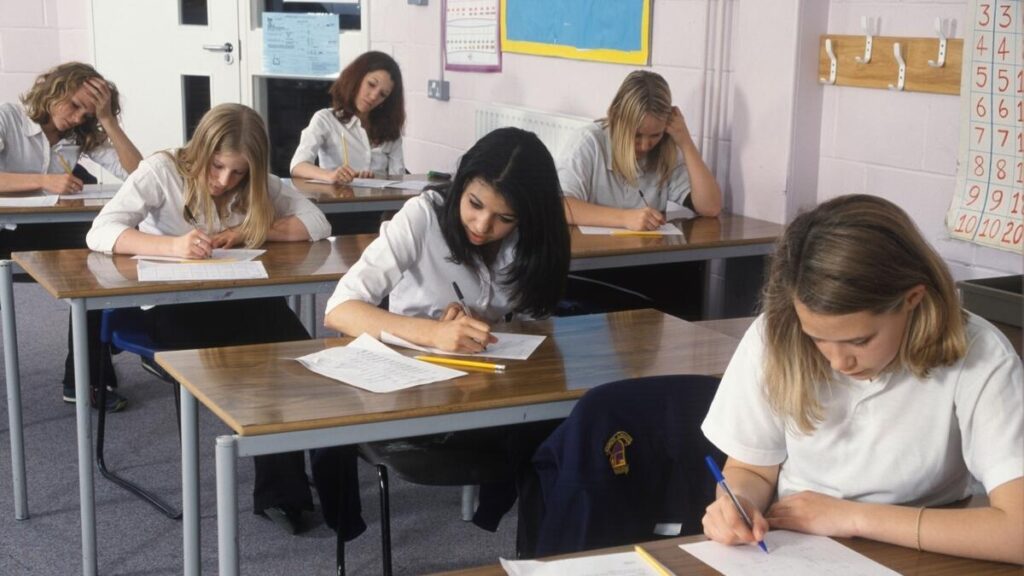According to a report by the International Association of Universities, over 80% of students worldwide opt for international curricula like GCSE A-Levels (Source: International Association of Universities, 2022). But have you ever wondered what sets them apart? In this article, we’ll delve into the world of GCSE and A-Levels, exploring their differences, and similarities, and which one might be the best fit for you.
What is GCSE?
GCSE, or General Certificate of Secondary Education, is a UK-based qualification offered by Cambridge International and Edexcel exam boards. It’s typically taken by students aged 14-16 and is a popular choice for secondary education worldwide. GCSE offers various subjects, including mathematics, science, languages, and humanities.
What are A-Levels?
A-Levels, or Advanced Levels, are a UK-based qualification offered by exam boards like Cambridge International and Edexcel. They’re typically taken by students aged 16-18 and are a popular choice for university admissions worldwide. A-Levels offer a wide range of subjects, including mathematics, science, languages, and humanities.
GCSE vs A-Levels: Key Differences
Let’s dive into the main differences between GCSA vs A Level:
- Curriculum Structure: GCSE has a more comprehensive curriculum, with students typically taking 5-10 subjects. A-Levels, on the other hand, have a more specialized curriculum, with students typically taking 3-4 subjects.
- Assessment Style: GCSE has a mix of exams and project work, while A-Levels have a more emphasis on exams.
- Grading System: GCSE uses a letter grading system (A*-G), while A-Levels use a letter grading system (A*-E).
- Recognition: Both GCSE and A-Levels are recognized globally, but A-Levels are more widely accepted in the UK and other European countries.
GCSE Schools in Dubai
If you’re looking for GCSE schools in Dubai, there are many options available. Some popular schools include:
- Dubai British School
- Jumeirah English Speaking School
- Dubai College
IGCSE Subjects in UAE
IGCSE, or International General Certificate of Secondary Education, is another UK-based qualification offered by exam boards like Cambridge International and Edexcel. It’s widely recognized and respected in the UAE and other countries. IGCSE offers various subjects, including mathematics, science, languages, and humanities.
How Many IGCSE Subjects are Required in UAE?
In the UAE, students typically take 5-10 IGCSE subjects, depending on their school and curriculum.
Conclusion:
In conclusion, GCSE and A-Levels are both respected qualifications with their own strengths and weaknesses. By understanding their differences and similarities, you can make an informed decision about which one is best for you. Remember, it’s not about which one is harder or easier – it’s about finding the right fit for your educational journey.
What is the duration of GCSE and A-Levels?
GCSE typically takes 2 years to complete, while A-Levels take 2 years to complete.
Are GCSE and A-Levels recognized globally?
Yes, both GCSE and A-Levels are recognized globally, but A-Levels are more widely accepted in the UK and other European countries.
Can I pursue A-Levels after completing GCSE?
Yes, you can pursue A-Levels after completing GCSE. Many students opt for A-Levels after completing their GCSE exams.
Is GCSE easier than A-Levels?
GCSE and A-Levels have different curricula and assessment styles, making it difficult to compare their difficulty levels. However, A-Levels are often considered more challenging due to their specialized curriculum and emphasis on critical thinking.
Can I pursue university admissions with GCSE?
Yes, GCSE is recognized by universities worldwide, and you can pursue university admissions with GCSE. However, A-Levels are more widely accepted in the UK and other European countries.
What is the grading system for GCSE and A-Levels?
GCSE uses a letter grading system (A*-G), while A-Levels use a letter grading system (A*-E).
Can I combine GCSE and A-Levels?
No, GCSE and A-Levels are two separate curricula, and you cannot combine them. However, you can pursue A-Levels after completing GCSE.
How many IGCSE subjects are required in UAE?
In the UAE, students typically take 5-10 IGCSE subjects, depending on their school and curriculum.











